Search Definitions
Browse Content

Definition
Ancient Korean Architecture
The architecture of ancient Korea is epitomised by the artful combination of wood and stone to create elegant and spacious multi-roomed structures characterised by clay tile roofing, enclosures within protective walls, interior courtyards...
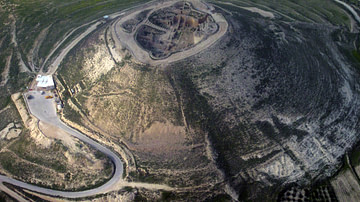
Definition
Herod the Great
Herod I, or Herod the Great (c. 75 – 4 BCE), was the king of Judea who ruled as a client of Rome. He has gained lasting infamy as the 'slaughterer of the innocents' as recounted in the New Testament's book of Mathew. Herod was, though, a...
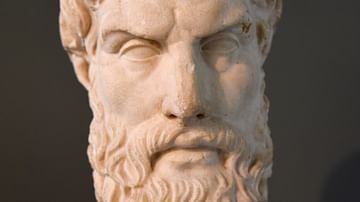
Definition
Epicurus
Epicurus (341 BCE – 270 BCE) was an ancient Greek philosopher, the founder of the Epicurean school in Athens, who taught that "Pleasure is the principle and end to a happy life." He was a prolific writer, amassing 37 volumes...
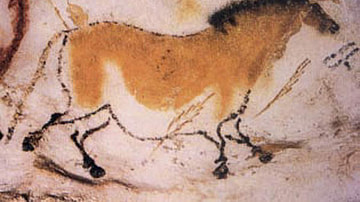
Definition
Lascaux Cave
Lascaux Cave is a Palaeolithic cave situated in southwestern France, near the village of Montignac in the Dordogne region, which houses some of the most famous examples of prehistoric cave paintings. Close to 600 paintings – mostly of animals...
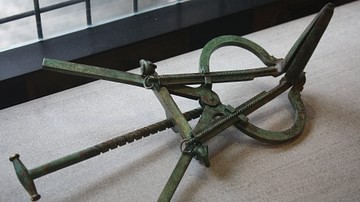
Definition
Roman Science
The Romans assimilated earlier Greek science for their own purposes, evaluating and then accepting or rejecting that which was most useful, much as they did in other fields such as warfare, art, and theatre. This assimilation of Greek thought...
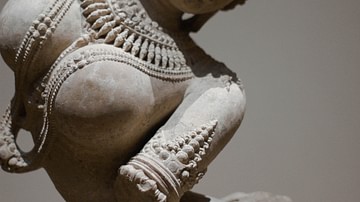
Definition
Apsaras and Gandharvas
In the Vedas, the apsaras are water nymphs, often married to the gandharvas. By the time the Puranas and the two epics were composed, the apsaras and gandharvas had become performing artists to the gods; the apsaras are singers, dancers...
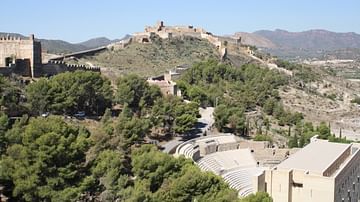
Definition
Saguntum
Saguntum (modern Sagunto), located near Valencia in Spain, was an Iberian, and then Roman, settlement. The town's most dramatic moment in history came in the late 3rd century BCE when it was attacked by Hannibal, an act which famously sparked...
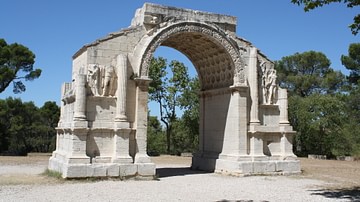
Definition
Glanum
Glanum, located near St-Rémy-de-Provence in southern France, was a Greek and then Roman town which prospered due to its location on trading routes between Italy and the Rhodanus (Rhone River). The town benefitted from a large building...
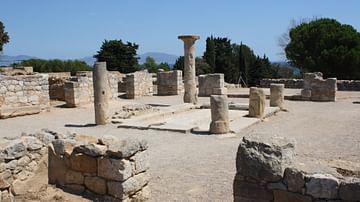
Definition
Empuries
Empuries (also Emporiae or Emporion) was a Greek and then Roman colony on the northeastern coast of Spain. Thriving as a local and Mediterranean trading centre, it prospered from the 6th century BCE to the 2nd century CE. Several times the...
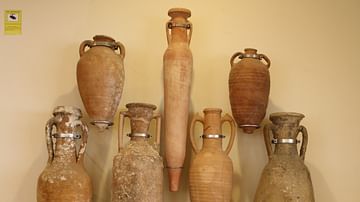
Definition
Amphora
An amphora (Greek: amphoreus) is a jar with two vertical handles used in antiquity for the storage and transportation of foodstuffs such as wine and olive oil. The name derives from the Greek amphi-phoreus meaning 'carried on both sides'...